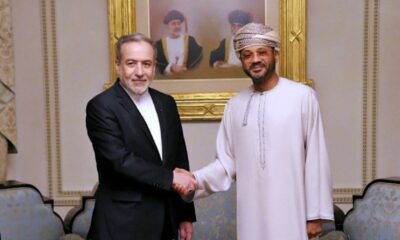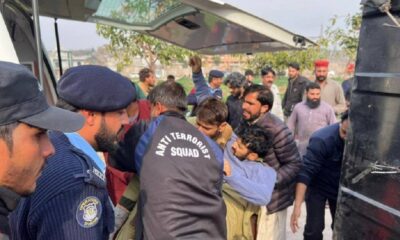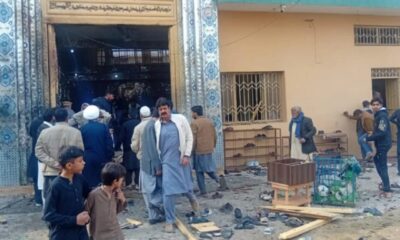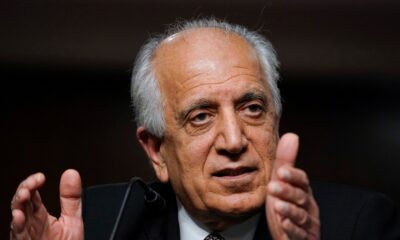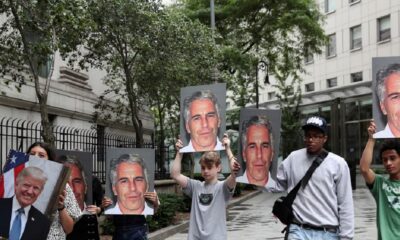Latest News
Former UNAMA chief gives frank opinion on current crisis
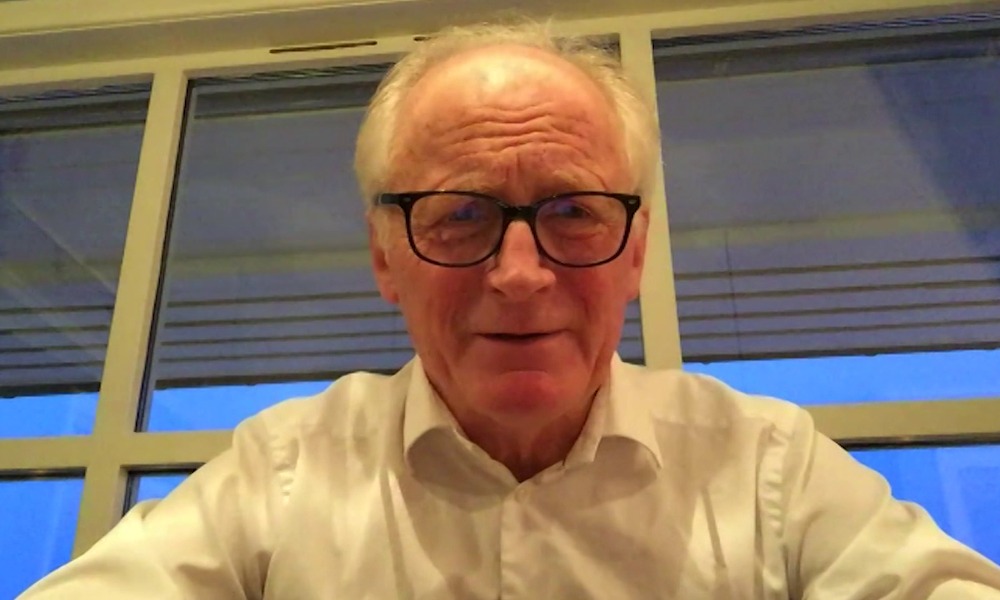
Kai Eide, former head of UNAMA has pointed a finger at Afghanistan’s leaders and said there is little unity among them and that hostile statements made could undermine the peace process.
Referring specifically to the first vice president, Eide said: “I see Amrullah Saleh, the vice president, constantly (making) what I would call rather poisonous statements.
“Yes we need a reduction in the level of violence, but we also need a reduction in the level of polemics that are being thrown out there,” he said adding that this affects “the atmosphere in a bad way”.
In an exclusive interview with Ariana News, Eide said he was shocked at the lack of preparation for peace talks on the part of the Afghan government.
He said discussions had been held for months, ahead of the launch of negotiations in Doha, but that government had been wholly underprepared for the talks.
One example he cited was that members of the High Council for National Reconciliation were only appointed in the lead up to the start of the peace talks. He said the lack of preparedness was “shocking” to him.
He also blasted government and said there was no unity among its leaders and that consensus is needed among Afghan politicians adding that
He said the insufficient preparations for peace talks was “shocking” to him even though officials have had a long time to get the structure right.
He questioned the reason for this and asked if this was “foot dragging or what is the behind this. Certainly there is controversy among the government leaders.”
He also questioned why a technical team for the peace talks had only recently been established and pointed out that modalities and procedures are difficult topics to discuss and decide on and said these can not be discussed just days before negotiations resume.
Clearly frustrated over the speed at which things have been done he said: “Get a structure in place!.”
Regarding the second round of talks, he said he is “worried” that the republic’s team is not ready but also stated that he is not sure if the Taliban team really knows what they want from this round of negotiations.
He said to date the Taliban has really only focused on discussions of a military nature opposed to talks which are centered on civilian and political-related topics.
Asked about the Taliban and who they are, Eide said he thinks they have changed but whether they have changed enough, only time will tell.
However, he said he did not think they can rule Afghanistan again? “No I don’t think so”. Do they want a different relationship with the international community? “Yes I think so,” he said.
“Do they know how to get there? I am very unsure.”
“Their experience is from negotiating military matters now over the last two years and their experience negotiating civilian issues, political issues is very minimal.”
He said he often asks himself whether the Taliban knows themselves where they are heading and what their red lines are.
“Sometimes I hear very combative statements from them regarding issues of key importance.”
On incoming US president Joe-Biden he said he does not think the incoming president will reverse outgoing President Donald Trump’s decision to withdraw troops
But he said he had expected spoilers to come out after the US and Taliban signed their agreement in February last year.
However, what was of serious concern to him was the high levels of violence.
Blunt and to the point he implied that circles within Kabul who do not want the peace talks to progress could be using the high levels of violence as an excuse “to say look the Taliban again. They don’t want to admit. They hiding their face. They really don’t want peace.”
“But I am also worried about the level of violence,” he said implying that if the Taliban, as they claim, are not behind the targeted killings, they “could have reassured the government and the international community” that they would reduce violence “and do it in a way that is visible.
He said violence “is highly counterproductive” and “I wish that would stop immediately”
He also said a ceasefire, although necessary, is “unrealistic at this stage” but what is realistic is that there needs to be a significant reduction of violence – as seen in other conflicts in the past.
Eide stated there is a lack of unity within the Kabul government – which is “frustrating”, especially in light of two “so-called presidents” having taken oath last year which was bad for the Afghanistan democracy.
This was in reference to last year’s election standoff between Ghani and his then CEO Abdullah Abdullah, who is now the Chairman of the High Council for National Reconciliation (HCNR).
He said this was testimony to Afghan leaders not being united – specially after having two election candidates each declare themselves winners and hold their own inauguration ceremonies..
According to Eide, this fiasco not only caused a lot of time to be lost but it also sent out a disappointing message around the world – with the international community asking why could the country’s leaders not unite.
“What I am afraid of is that disagreement is still underlying and hampers the efficiency of the government.
“When you have claims all the time that the agreement is not respected etc; you see Dr Abdullah doing his thing, saying his thing; you see president Ghani saying sometimes other things, and vice president Saleh certainly on a more hostile note whenever he expresses his view.”
“If you want to succeed then you have to be united. And you have to demonstrate a united front,” he said.
Anything else makes you be seen as weak and you cannot afford to be weak in times like this, he said.
On US agreement with the Taliban, Eide said Trump’s plan “to end the endless wars” including the Afghan conflict was not well thought out and that the decision to withdraw troops was based on his election campaign promises to end wars the US is involved in.
“I think the question of withdrawal of American forces and international forces was only a matter of time. It would not have lasted much longer under the circumstances.
But he stressed that there was sometimes “no compromise” even though Afghanistan was a democracy.
Eide said it was not possible to have half a democracy and the system as it is needed to be accepted.
In line with this he said the discussions on what type of political system will be established will “be a great challenge” . He also pointed out that another question was around the rights and freedoms of the individual Afghan, including Afghan women and girls.
He said specifically with rights, for women and children and the media, it was critical that this was at 100 percent. He said one can’t go with 50 percent of rights – and that there was no compromise on this.
He said he did not see how a democratic system and peoples’ rights could be negotiated and that it was clear cut – you either “accept them or you don’t accept them”.
But going back to violence, he said it was critical to get the levels of violence down so as to create a calmer atmosphere so negotiators can sit and discuss issues without being distracted.
He also pointed out that the recent calls by officials and Ghani to hold the talks in Afghanistan was not necessary. He stated that it was normal for peace talks to be held in a third country.
He said by raising these types of issues only distracts from the “central issues that are confronting you at the moment.
On the comments by Saleh, the vice president’s office told Ariana News that the first VP has constantly emphasized the need for a reduction in violence and “Saleh has put all of his efforts for maintaining peace in the country.”
Latest News
Islamic Emirate strongly condemns mosque bombing in Islamabad
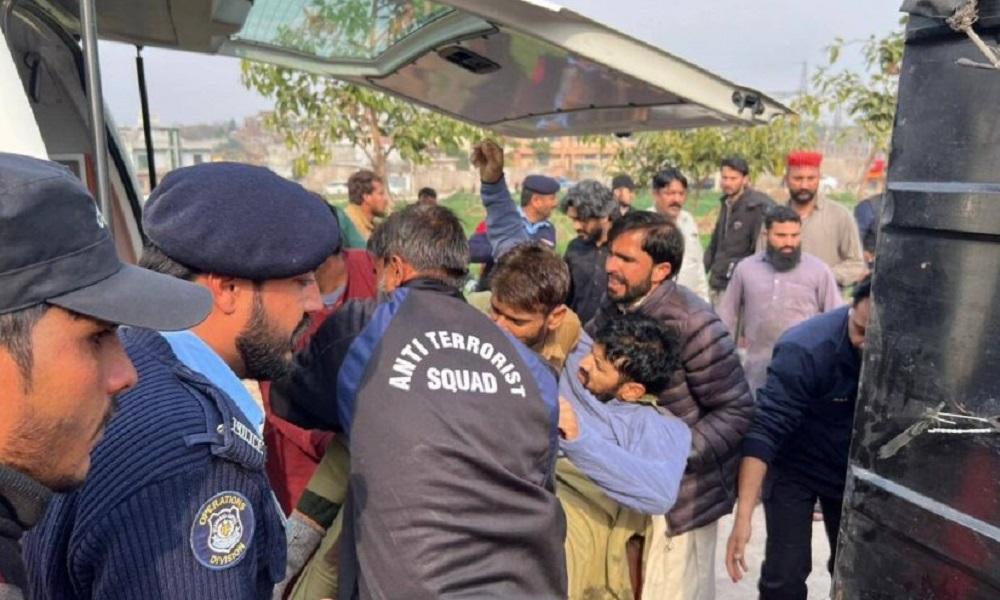
The Ministry of Foreign Affairs of the Islamic Emirate of Afghanistan has strongly condemned Friday’s suicide bombing at a Shi’ite mosque in Islamabad, the capital of Pakistan, which left 31 people dead and 179 others wounded.
Abdul Qahar Balkhi, spokesperson for the Ministry of Foreign Affairs, said in a statement that the Islamic Emirate considers such attacks—which violate the sanctity of religious rites and mosques and target worshippers and civilians—to be contrary to Islamic and human values.
The Islamic Emirate also expressed sympathy with the families of the victims and wished a speedy recovery to the wounded.
Latest News
Suicide bomber kills 31 in Shi’ite mosque in Pakistan’s capital
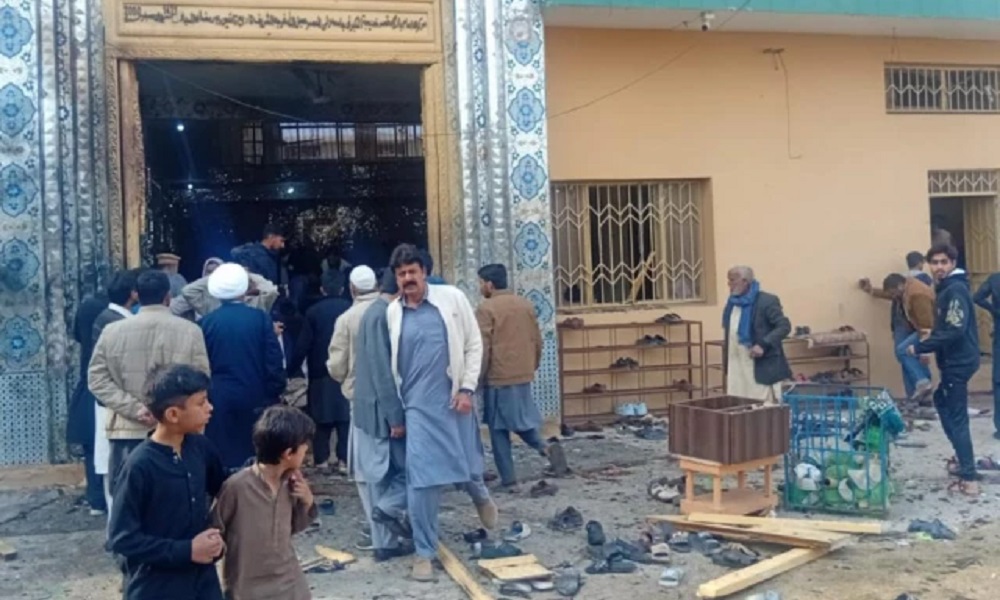
A suicide bomber killed at least 31 people and wounded nearly 170 others during Friday prayers at a Shi’ite Muslim mosque in Pakistan’s capital, Islamabad, Reuters reported, citing police and government officials.
Images from the site showed bloodied bodies lying on the carpeted mosque floor surrounded by shards of glass, debris and panicked worshippers.
Dozens more wounded were lying in the gardens of the Khadija Tul Kubra Imambargah, in a semi-urban area on the outskirts of Islamabad, as people called for help.
Bombings are rare in the heavily guarded capital, although Pakistan has been hit by a rising wave of militancy in the past few years.
“The death toll in the blast has risen. A total of 31 people have lost their lives. The number of wounded brought to hospitals has risen to 169,” Deputy Commissioner Islamabad Irfan Memon said in a statement.
Two police officials said the attacker was stopped at the gate of the mosque before detonating the bomb. They asked not to be identified as they were not authorized to speak to the media.
Latest News
Central Asian leaders are urging Pakistan to improve Afghanistan policies, says Khalilzad
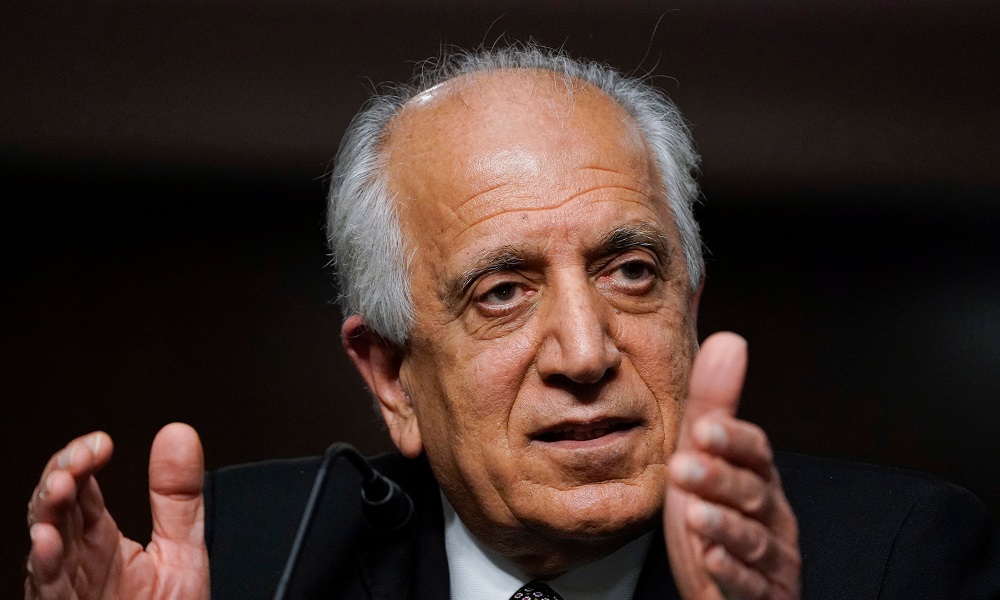
Former U.S. envoy Zalmay Khalilzad has highlighted the strategic importance of Pakistan’s relationship with Afghanistan, noting that visiting Central Asian leaders are likely encouraging Islamabad to strengthen its policies toward Kabul.
In a post on X, Khalilzad emphasized that Central Asian nations have a strategic interest in access to Pakistan and beyond, including the sea, to support their trade and connectivity projects. He pointed out that these countries are particularly focused on developing railways, pipelines, telecommunications, and electricity networks linking Central Asia and Pakistan—a move he said would also serve Pakistan’s interests.
“Of course, Afghanistan’s role is vital to the goal of regional connectivity and development,” Khalilzad said. “Stability in Afghanistan and good Pakistan/Afghanistan relations are the absolute prerequisite.”
He suggested that the Central Asian leaders visiting Islamabad are urging improvements in Pakistan’s Afghanistan policies and expressed hope that Pakistani authorities would listen to these recommendations.
Pakistani officials have repeatedly claimed that Afghanistan-based militants have carried out recent attacks in Pakistan. Kabul denied the charge, saying it could not be held responsible for security inside Pakistan.
Trade between the two countries remains suspended following a deadly clash near the Durand Line in October.
-

 Sport4 days ago
Sport4 days agoAFC Futsal Asian Cup 2026: Final eight confirmed
-
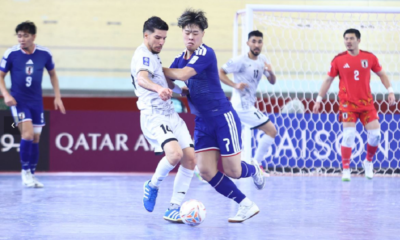
 Sport3 days ago
Sport3 days agoJapan trumps Afghanistan 6-0 in AFC Futsal Asian Cup quarter-final
-

 Sport4 days ago
Sport4 days agoAfghanistan in new kit for T20 World Cup warm-up against Scotland
-

 Sport2 days ago
Sport2 days agoHosts and heavyweights advance as AFC Futsal Asian Cup reaches semifinals
-

 International Sports4 days ago
International Sports4 days agoPakistan to boycott T20 World Cup group match against India
-

 Sport4 days ago
Sport4 days agoAfghanistan crush Scotland in ICC T20 World Cup warm-up
-

 Latest News1 day ago
Latest News1 day agoTerrorist threat in Afghanistan must be taken seriously, China tells UNSC
-

 Latest News2 days ago
Latest News2 days agoUzbekistan, Pakistan advance Trans-Afghan railway project


